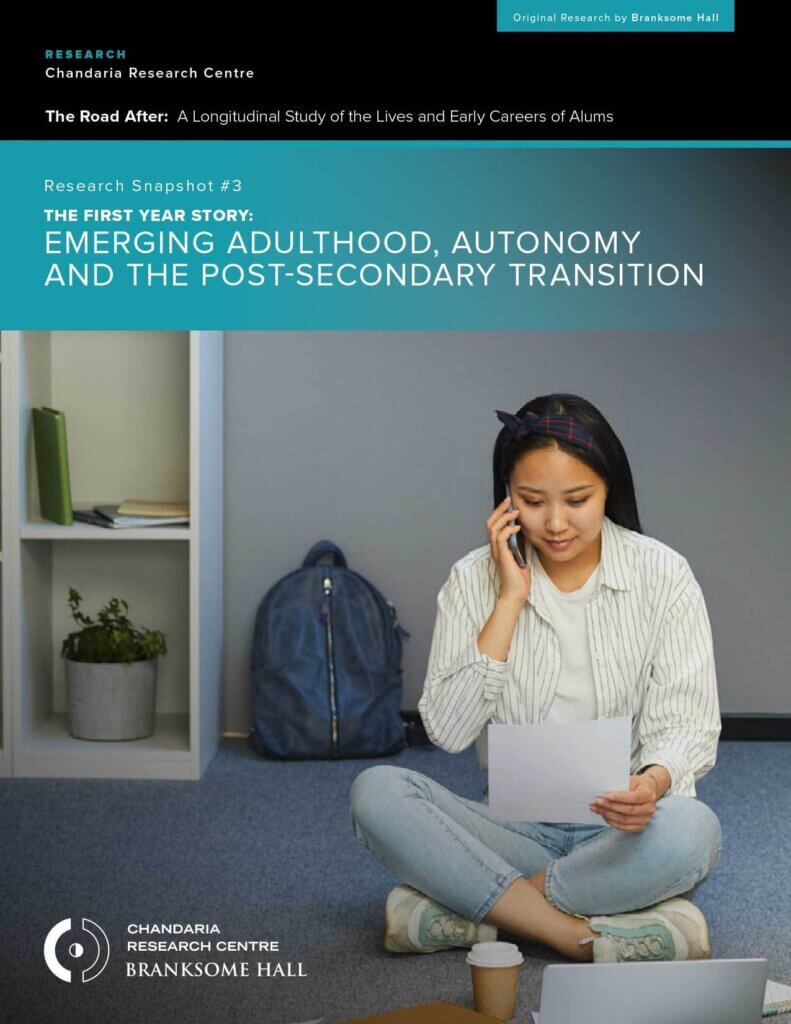Branksome Hall
The First Year Story Snapshot #3: Emerging Adulthood and Autonomy and the Post-Secondary Transition
Published On:
Written By: Chandaria Research Centre (CRC)

The First Year Story: Emerging Adulthood, Autonomy and the Post-Secondary Transition
Overview
The transition from high school to university is an important rite of passage for many young people. It is often a first major step into adulthood and toward the personal growth and development that accompanies it. It is also marked by a series of qualitative changes in young people’s lives. University entrance comes with a marked increase in autonomy. Often for the first time, students will live away from their families and social support systems. They will be free to make their own decisions and structure their own time. At the same time, however, they will experience a corresponding increase in responsibility. They will now be responsible for their own self-management and take care of themselves physically, emotionally, socially, and academically.
Introduction
University transition thus requires the development of coping and self-regulatory skills. The post-secondary transition falls, in fact, within the developmental stage of “emerging adulthood” (Arnett, 2007; 2010), a distinct developmental period between adolescence and adulthood typically lasting from age 18 to 25 and characterized by unique cognitive, emotional, and behavioural changes. The brain’s centre for problem-solving and reasoning fully develops during the emerging adult period: the pruning of gray matter that begins in adolescence continues into the twenties and mid-thirties, along with growth in the brain’s white matter (Tanner & Arnett, 2016). Emerging adulthood is thus characterized by changing and developing cognitive capacities, strategies, and organization, and the attainment of wisdom-related knowledge and judgement. One of the primary psychosocial goals in this period is that young people become autonomous, self-governing, and self-regulating (Arnett, 2000; 2001). The stage is also characterized by identity exploration; feeling caught between adolescence and adulthood; instability; selffocus; and a belief in open possibilities for the future (Arnett, 2010; Tanner & Arnett, 2016).
This snapshot is the third in a three-part series that reports on key findings from The Road After study about Branksome Hall graduates’ experiences in their first year of university. Branksome Hall is an all-girls’ K-12 International Baccalaureate school* in Canada . The study focuses on alums’ navigation of emerging adulthood, their experiences of increased autonomy after graduation from high school, and their ability to cope with the responsibility that accompanies this new freedom.







